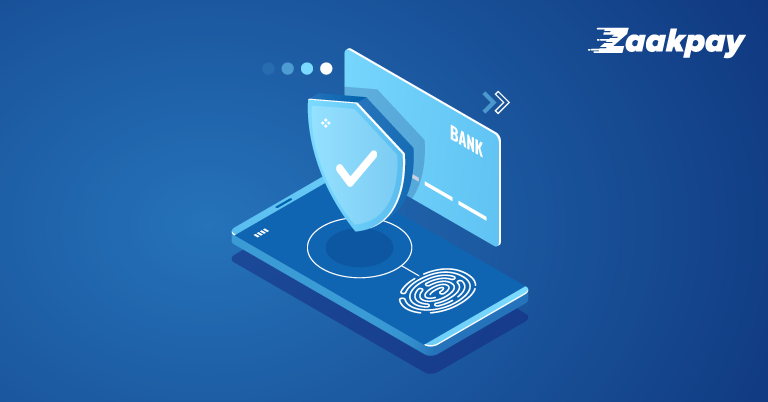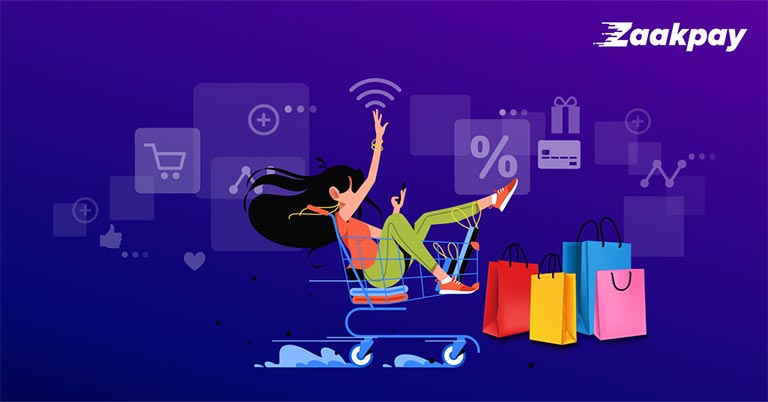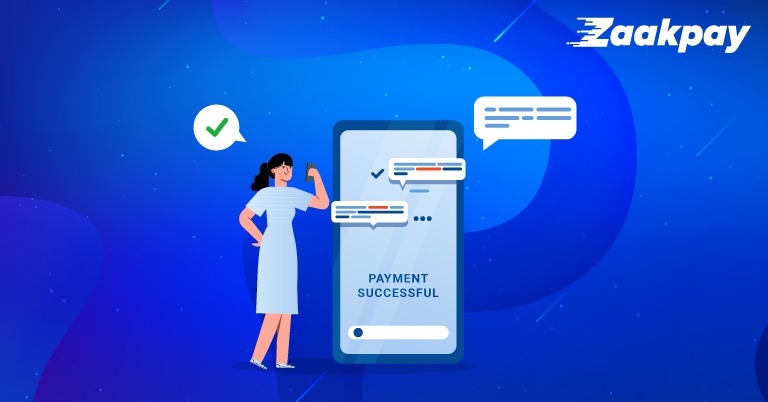eCommerce has revolutionized buying with the online availability of goods, services, and solutions. It has opened up innumerable opportunities to entrepreneurs globally and allowed it to broaden its prospects. But at the same time, it has also opened doors to online fraud and identity theft. According to cyber statistics, around 50,000 cyber crimes were reported in the year 2020 in India.
Online payment security is fast becoming one of the most serious issues in the online marketplace that needs to be managed by both business owners and customers. Businesses must protect customers against cyber theft and online attacks to gain their trust and loyalty.
If a customer trusts a digital payment system with their information, the merchants and payment processors need to take adequate security measures to ensure that their business and customers are kept safe from risks that come with online payments. We at Zaakpay work with the merchants and maintain customer trust by offering them a seamless and secure buying experience.
What is online payment security?
Online payment security includes the rules, security measures, and regulations to protect a customer’s privacy, data, and money. In the current era of digitization, all businesses need to be aware of every problem or hazard that may occur in cyberspace, including a simple action like clicking a link.
To achieve this, they must partner with an online payment gateway who knows and understands online payments. Choosing the right payment gateway ensures that your customer securely makes their online payment with all security protocols and processes in place. An experienced payment gateway provider like Zaakpay can understand business needs and design an online payment system with all security measures that can prevent security breaches.
Why do Online Payments Need to be Secure?
Online payments need to be secure for both the business owners and customers to ensure smooth transactions, reduce fraud, and retain loyal customers.
How Zaakpay ensures the security of online payments?
At Zaakpay, we strive to make each transaction safe and successful through our secure payment gateway. Being a technology-first online payment platform, online payment security is our prime focus. We leave no stone unturned to safeguard the interests of both online business owners and their customers who use their products and services.
Our team at Zaakpay understands that merchants choose us over our competitors because of the assurance we promise to deliver a secure payment system for our loyal and prospective clients. With the increasing number of eCommerce users and transactions, we consider it our mission to understand and follow mandatory security protocols for eCommerce websites to avoid any fraudulent activities.
Zaakpay adopts the following online security protocols for securing transactions:
- TLS and SSL in online payments
Data security must begin right after a user lands on an eCommerce website or payment gateway, and a TLS certificate gives this assurance. The TLS certificate assures the user that the data transmitted between the browser and the web server is encrypted and safe.
The leading secure payment gateways like Zaakpay deploy the highest-ranked SSL certificate for websites which is the EV SSL or the Extended Validity SSL certificate.
In the absence of TLS encryption, data can be shared all over the internet in its raw, unencrypted form. This data is visible and accessible to anyone and can be easily intercepted or misused. You can find out if your website has an SSL certificate by checking if the URL has http:// or https:// protocol. The extra “s” denotes the secure e-payment system. Some URLs also have a lock sign at the beginning of the URL to denote SSL certification.
- PCI compliance in online payments
The Payment Card Industry Data Security Standards (PCI-DSS) constitute the set of policies that govern how the sensitive data of a credit or debit cardholder must be handled. The PCI Security Standards Council is a global body formed by 4 major card companies (Visa, American Express, Master Card, Discover). They promote and maintain all the compliance rules to manage cardholder data for all online digital payment systems and eCommerce websites.
As a trusted online digital payment system, Zaakpay follows the following directives to be PCI-DSS compliant:
- Maintain a secure network for payment processing
We implement robust firewalls that can offer protection against malicious security attacks. Furthermore, our payment gateway does not allow default credentials such as manufacturer PIN or Password and allows customers to alter data as required.
- Ensure that all data is encrypted during the transaction
Whenever cardholder’s information is transmitted online, it must be encrypted. We at Zaakpay ensure that your entire card information is encrypted during payment and at checkout via our TLS or Transport Layer Security. This security feature prevents illegal interception of data when it is transmitted from your end to Zaakpay.
In Zaakpay’s payment gateway, all details entered by you, including your name, address, debit/credit card information, are used only for order processing. Zaakpay never stores sensitive information such as CVV and PINs.
- Maintain secure infrastructure
Zaakpay follows the PCI-DSS directive mandate to remain up-to-date with new PCI-DSS mandates and leverage current spyware and software. This protects the digital payment system against known software vulnerabilities and performs regular system scans to ensure regular system running and maximum data protection.
- Restrict information access
This is the most crucial component of the PCI-DSS directive that is diligently followed by Zaakpay. We secure online payments made on eCommerce websites by restricting access to confidential cardholder information only to authorized personnel. We believe that cardholder information must be protected at all times, both physically and electronically.
- Tokenization
We, at Zaakpay, implemented the process of tokenization for online payments through our gateway. Tokenization is a process in which the 16-digit card number is replaced by a surrogate value called a “token.” Card tokenization ensures that the original data is safe and payment gateways can be used by the users to securely access cardholder data and initiate a secure payment. Card on File tokenization (CoF) helps every business enhance security. It eliminates the need to store card information and reduces the risk of security breaches to a great extent.
Conclusion
If you are an established or a budding eCommerce website, you must remember that fraud prevention, data protection must be an integral part of the payment process and your digital payment system. To achieve this, you must partner with an established payment gateway like Zaakpay that already has all security protocols and data security features in place.
Follow Us on:

